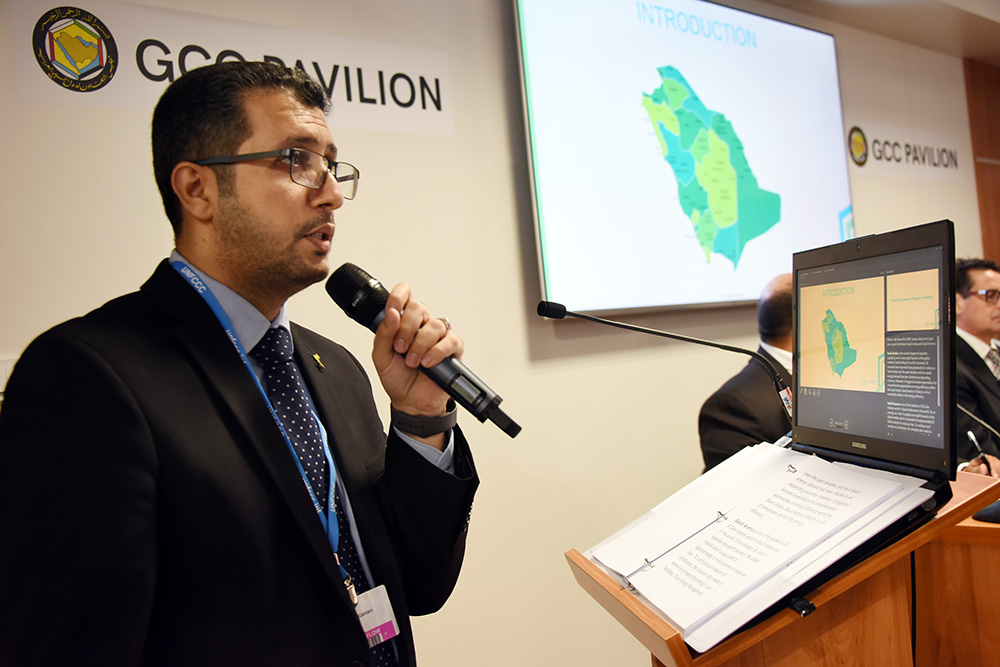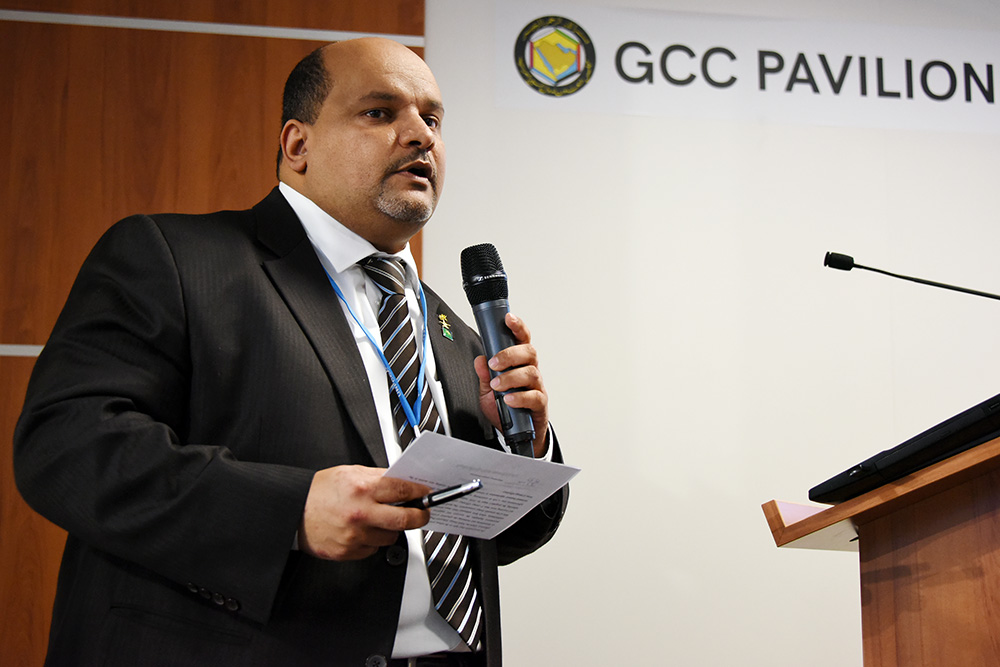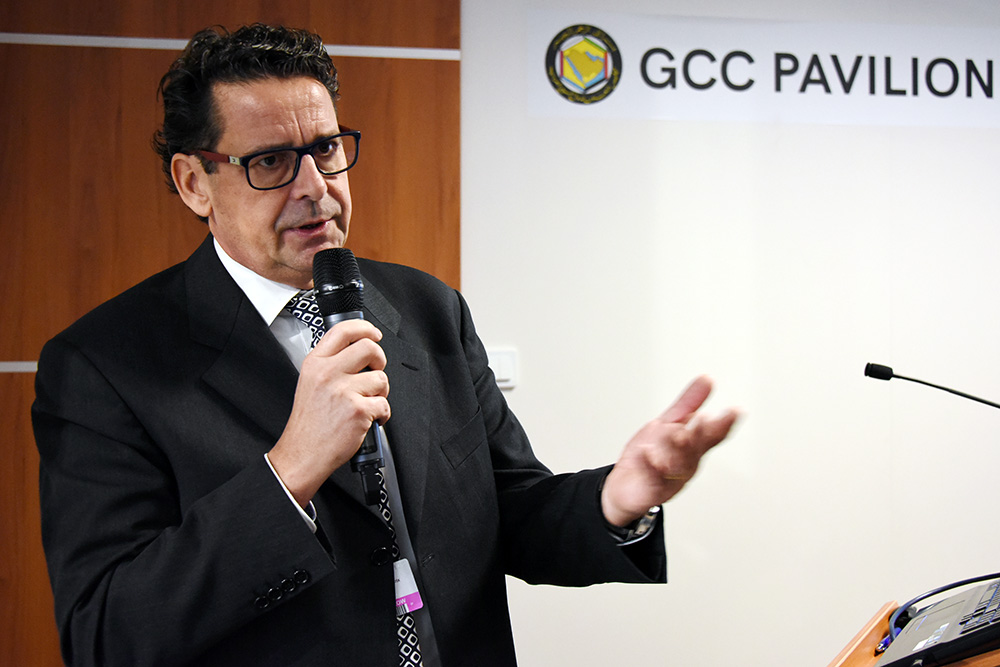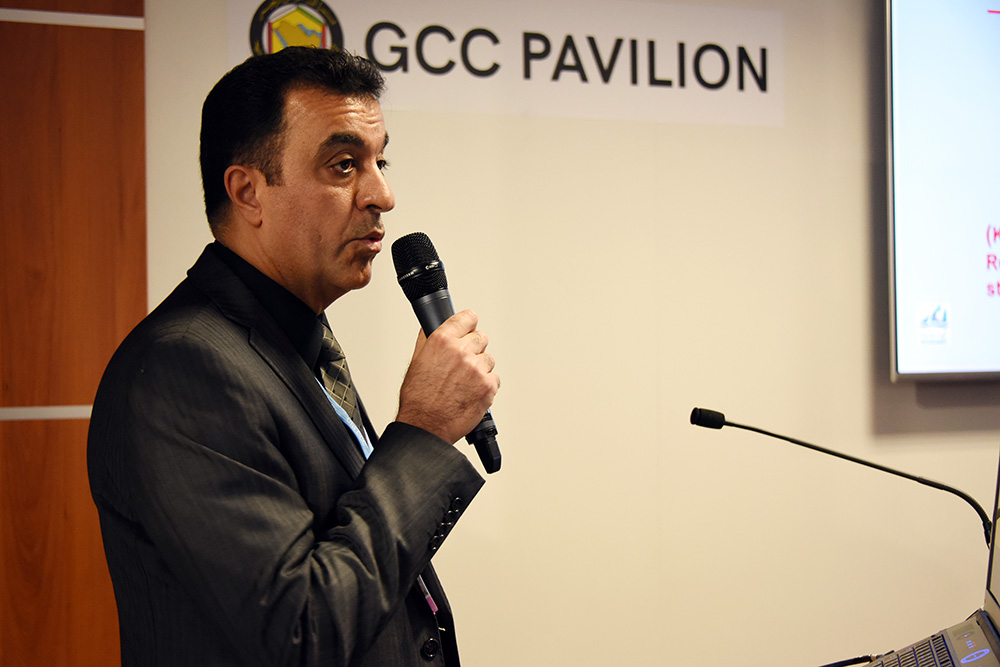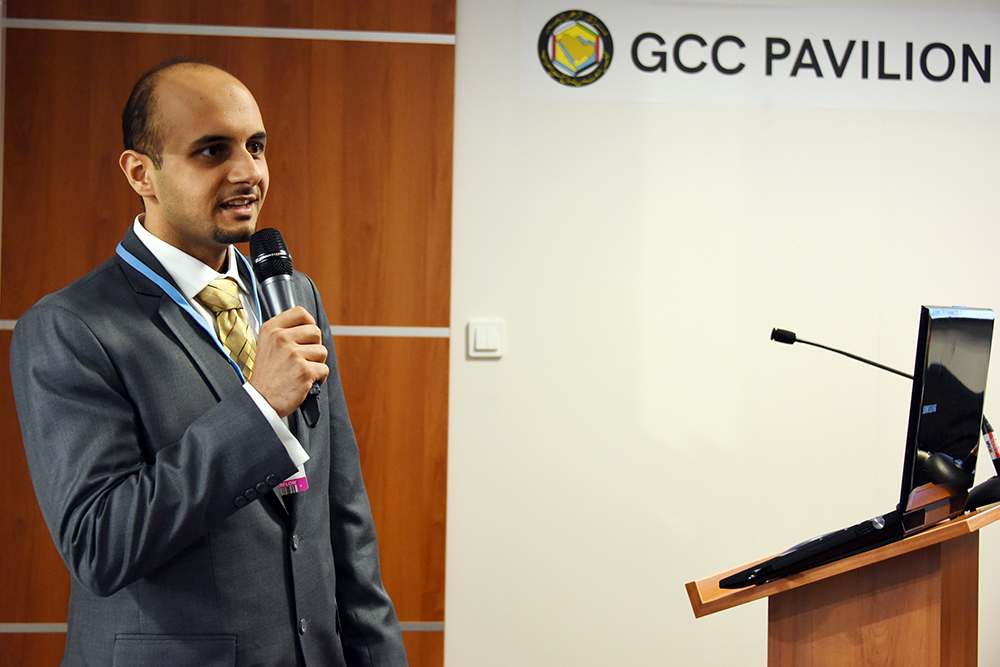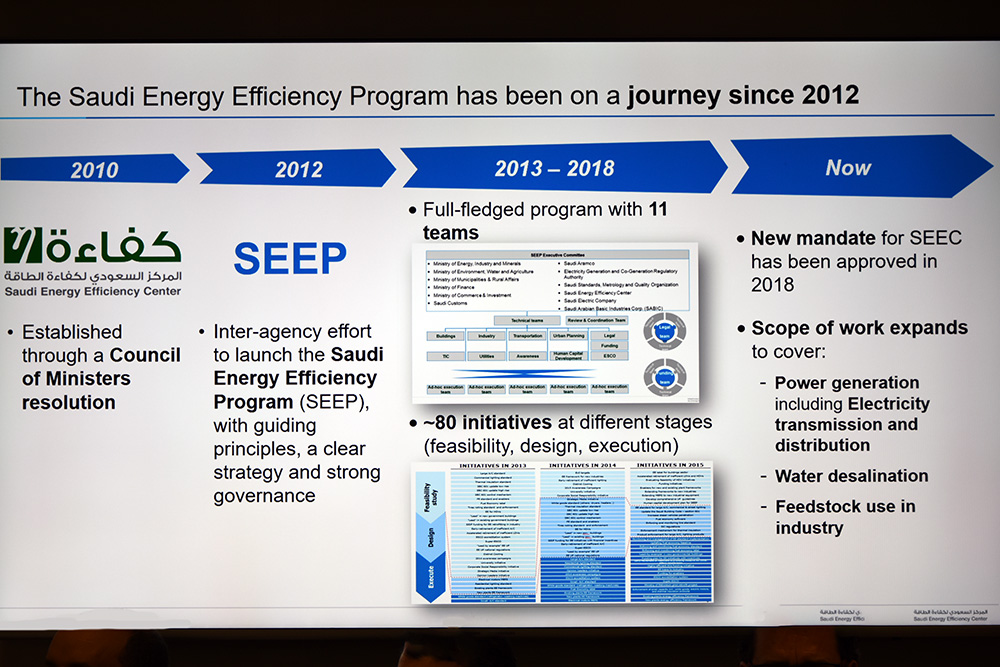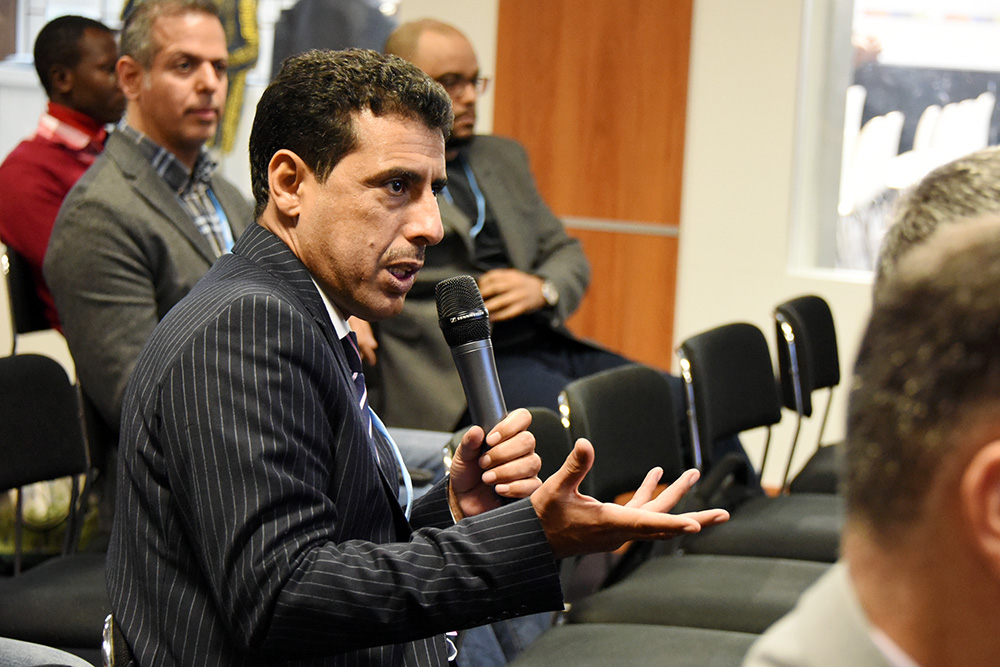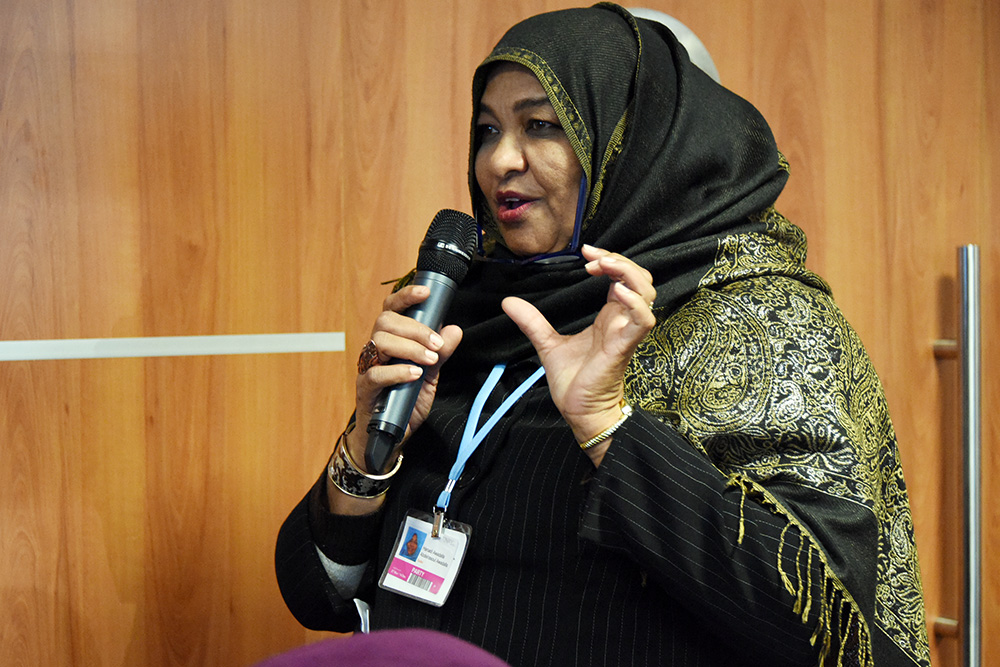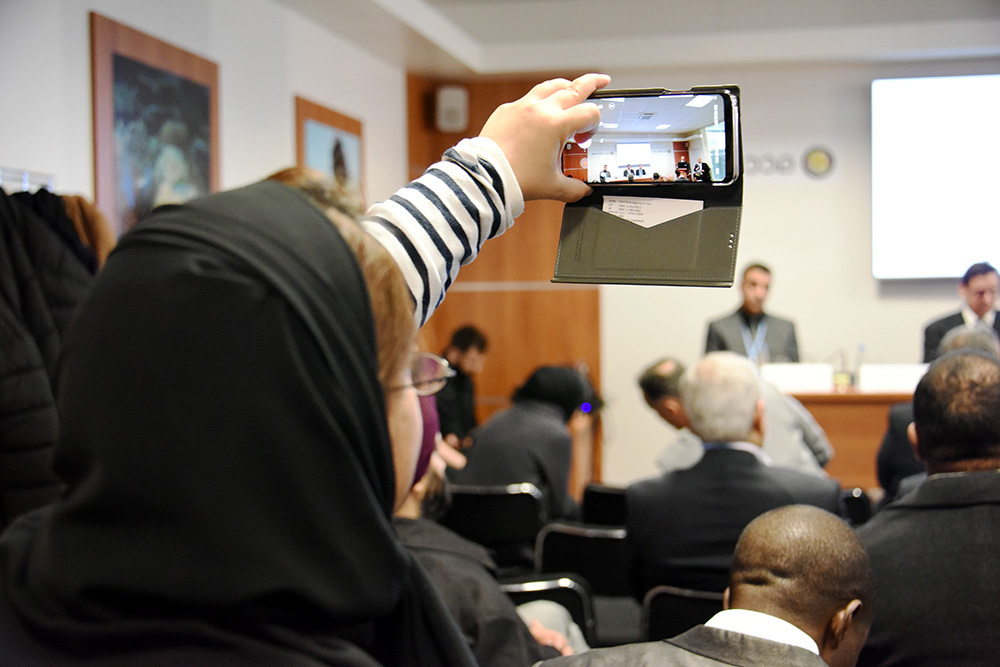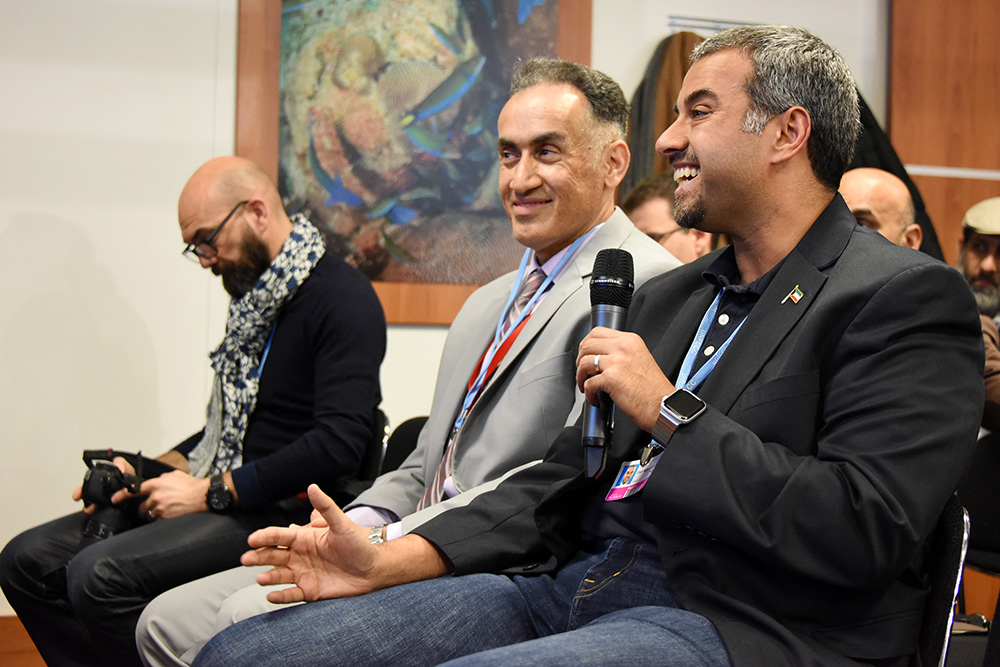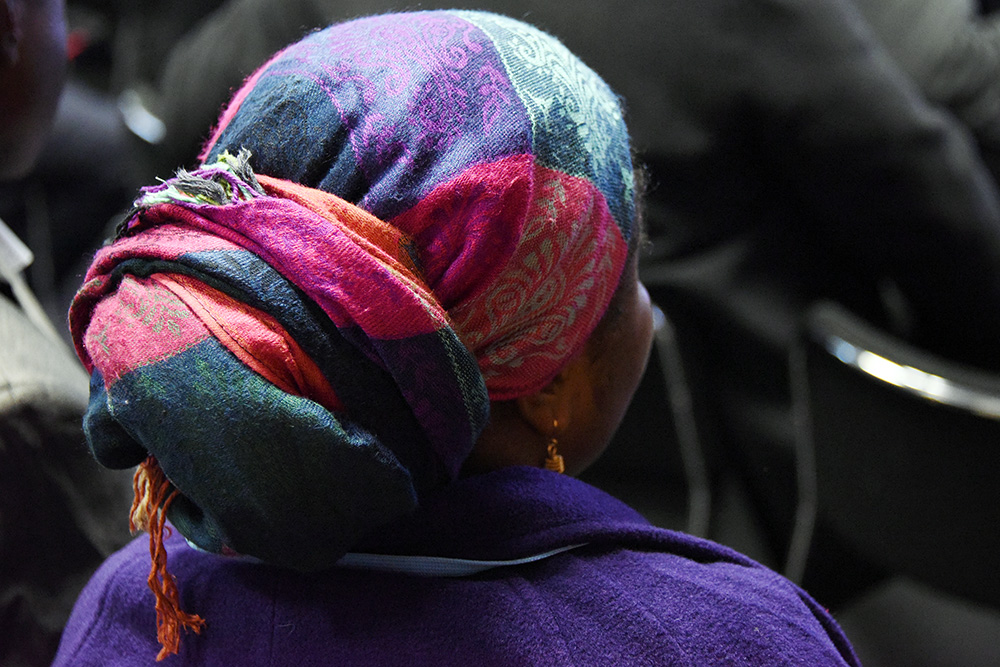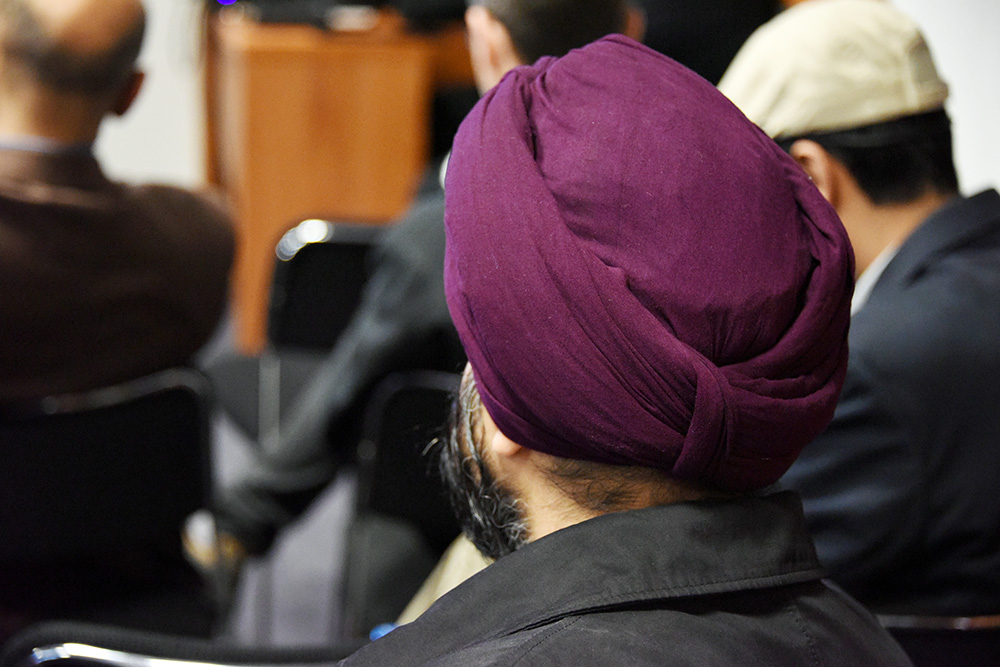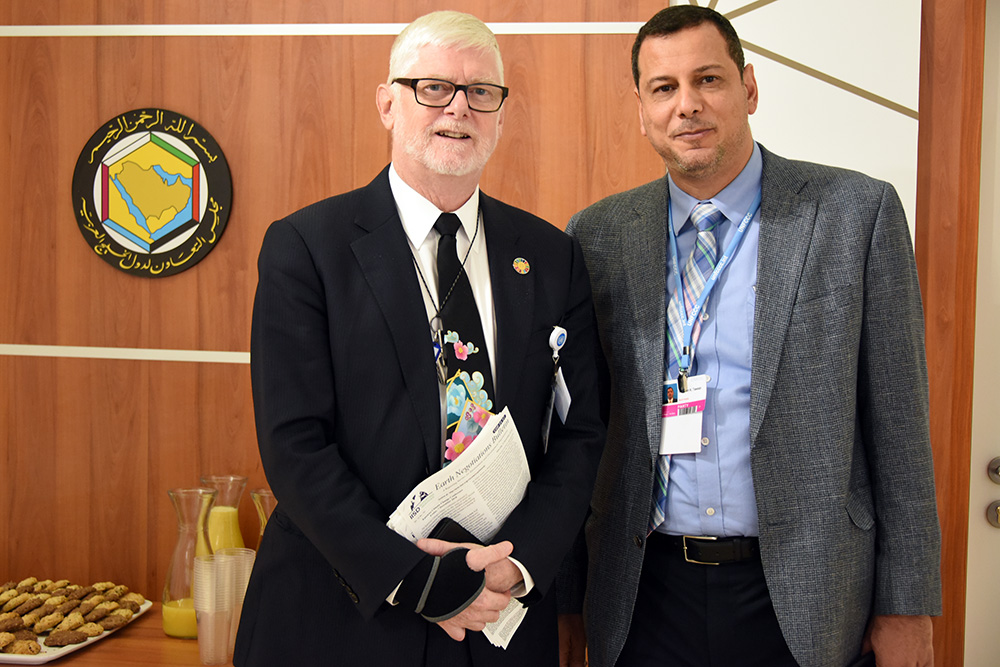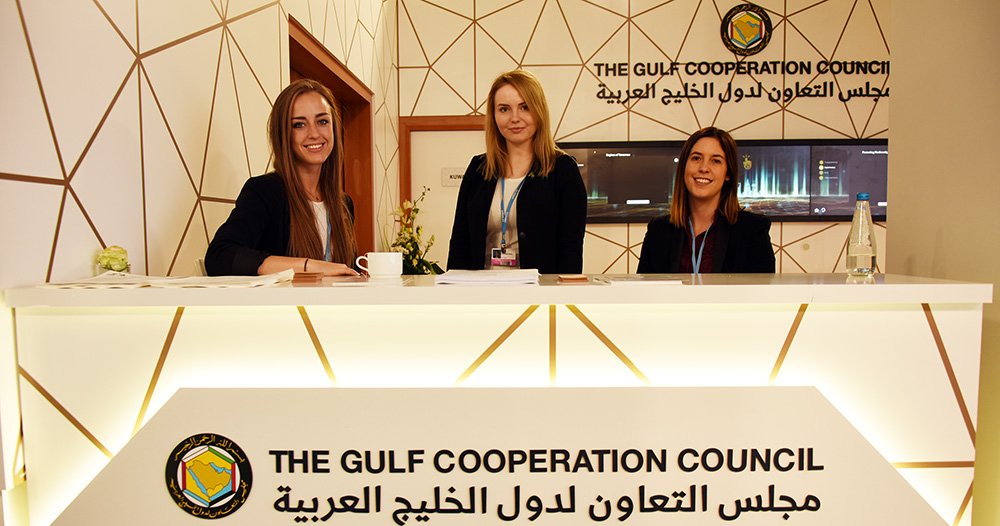Summary
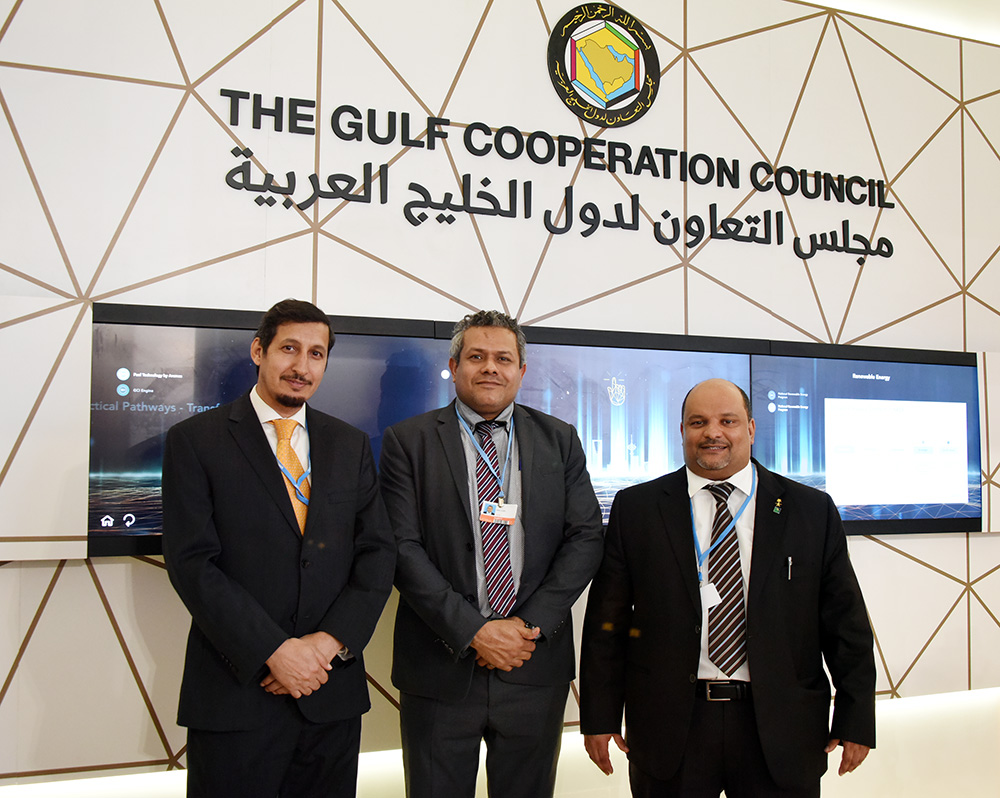
Posted by IISD Reporting Services on Monday, 10 December 2018
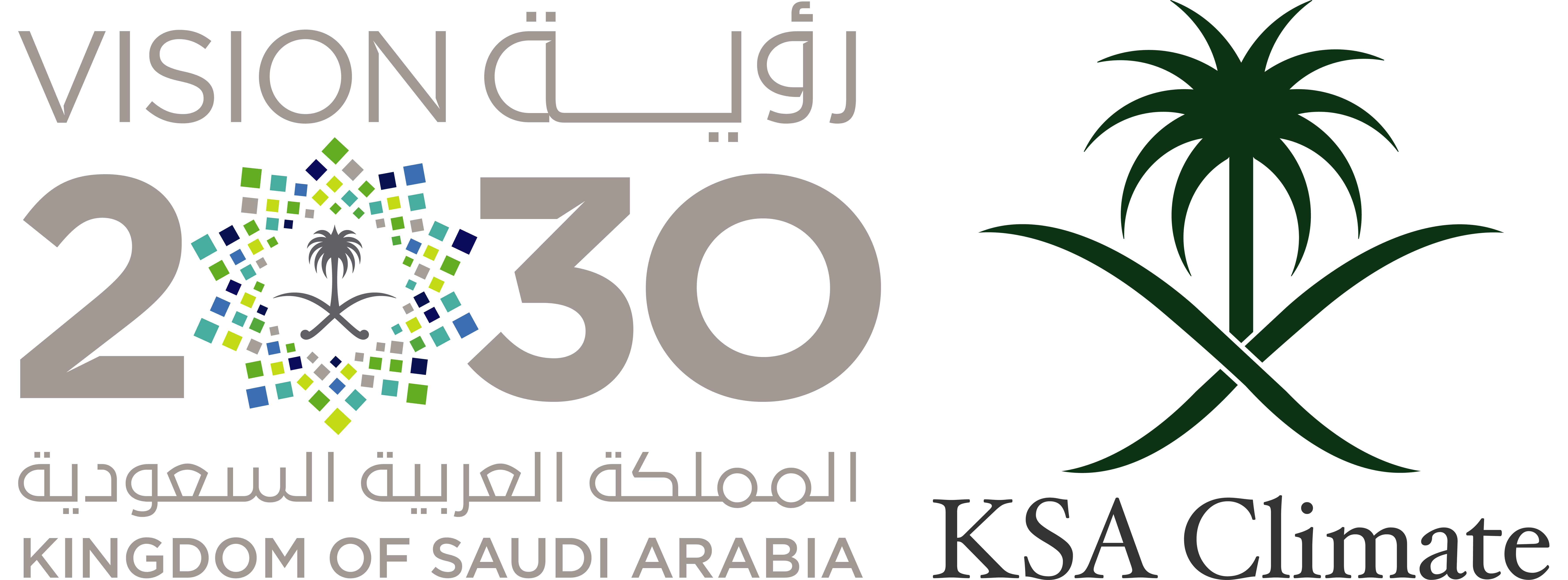 IISD Reporting Services, through its ENB+ meeting coverage, is providing coverage of selected GCC Pavilion events at the Katowice Climate Change Conference - December 2018, including written, digital and video coverage.The following event was covered by IISD Reporting Services on Saturday, 8 December 2018:
IISD Reporting Services, through its ENB+ meeting coverage, is providing coverage of selected GCC Pavilion events at the Katowice Climate Change Conference - December 2018, including written, digital and video coverage.The following event was covered by IISD Reporting Services on Saturday, 8 December 2018:
Photos by IISD/ENB | Natalia Mroz / Diego Noguera
For photo reprint permissions, please follow instructions at our Attribution Regulations for Meeting Photo Usage Page
Energy Efficiency Applications within the Gulf Region
Presented by the Kingdom of Saudi Arabia
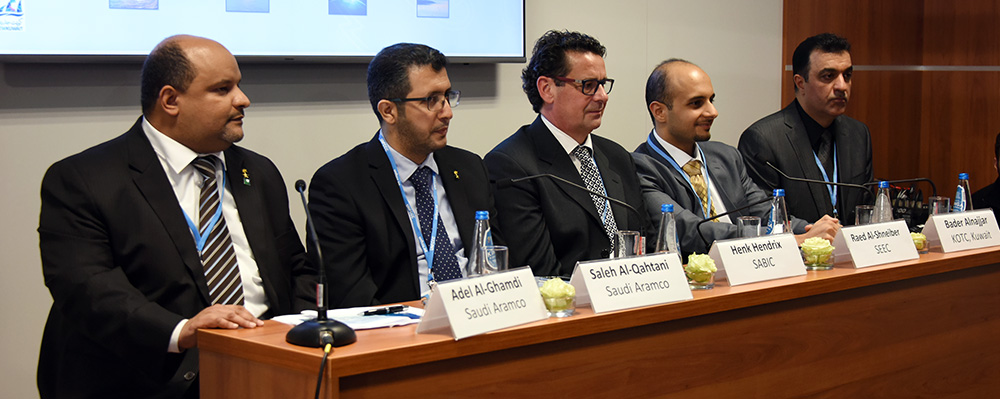
This event centered on how to fast-track effective policy implementation in national priority areas, including leveraging energy efficiency and resource management to facilitate economic reform and diversification, and promote sustainable development.
Moderator Adel Al-Ghamdi, Saudi Aramco, said the session would focus on lessons and practices with respect to energy applications to mitigate climate change in the Gulf region.
Saleh Al-Qahtani, Saudi Aramco, outlined his company’s progression in energy efficiency since the development of the Energy Conservation Policy and the Energy Management Program in 2000. He explained the four Program pillars: policy and regulation; monitoring and targeting; engineering solutions; and knowledge awareness, reporting that Saudi Aramco has achieved 75% of its energy efficiency objectives to date. Al-Qahtani shared the Lead-By-Example (LBE) initiative geared towards promoting energy efficiency at the national level by targeting a 35% reduction in energy consumption in buildings, transportation, and communities by 2020. He reported that the LBE initiative has been implemented through, among others, transformation to LED lights; more efficient water heaters; conversion of vehicles from V8 to more fuel-efficient V6 engines; and the installation of smart meters. He reported that total annual savings from this initiative is equivalent to one million barrels of oil equivalent, which translates to 350 thousands metric tons of CO2 emissions to be mitigated.
Henk Hendrix, SABIC, reported that his institution’s energy and resource efficiency efforts target continuous improvement under the SABIC Energy Management Program. He cited the Site Energy Optimizer tool to simulate, monitor, and optimize the overall site energy performance, and as a tool to enable continuous improvement from different engineering processes at SABIC. The SABIC Certified Energy Expert Training, he said, is also key in developing expertise and transforming culture related to energy use and efficiency. He reported that, to date, 84 graduates have received training through four cycles of the course, highlighting the hands-on approach achieved through case study projects to apply the principles from the training. Hendrix also drew attention to the SABIC renewable strategy aimed at finding ways to implement renewables in order to decrease reliance on fossil fuel energy.
Raed Al-Shneiber, SEEC, presented on the Saudi Energy Efficiency Program, which aims at improving energy efficiency in industry, building, and transportation sectors, noting that these three sectors represent collaboratively around 90% of the domestic energy consumption. He highlighted the Program’s major efforts, including:
- the development of an energy efficiency framework for industrial plants, emphasized on the program’s efforts in providing the necessary enablers for industrial sector such as providing soft loans for energy efficiency projects through the Saudi Industrial Development Fund for energy efficiency-related projects in industry sector;
- the development of 24 energy efficiency standards and regulations in buildings, such as on insulation and air conditioning (AC) energy efficiency, which have resulted in a 57% increase from 2012 to 2018 in Energy Efficiency Rating requirements for split AC; and
- the introduction of the Saudi Corporate Average Fuel Economy (CAFE) standard and fuel economy label for light vehicles, which has led to significant improvements in the new fleet’s fuel economy.
He then stressed that the Program’s efforts and achievements play a role in contributing to Saudi Arabia’s economic diversification.
Bader Alnajjar, KOTC, spoke about the KOTC’s efforts to address the environmental challenges facing shipping, saying that regulations in the shipping industry are “always one step behind” adequate environmental protection. He pointed to the 870 million tonnes of CO2 emissions by the international shipping industry, which transports 80% of world trade. He noted that the KOTC is fully compliant with the International Convention on the Prevention of Pollution from Ships that controls CO2 emissions in the sea, and has implemented additional efforts by investing in: regulating the speed of ships; testing innovative ship designs, such as introducing rudders and propellers within silicon coating; using energy saving devices, such as pre-swirl stators and ducts, on existing vessels; and controlling volatile organic compounds. Alnajjar concluded by highlighting KOTC’s continued efforts to contribute to limiting global warming to 1.5°C, calling for enhanced regional cooperation in the shipping industry by GCC countries.
Discussions focused on the technological and economic feasibility of switching to energy efficient technologies. Panelists noted the difficulty of shifting to LNG in the shipping industry due to the lack of appropriate facilities in ports. They noted that LNG markets are currently weak and huge investments would be required to make the shift. Participants also urged that recent successes be consolidated, particularly on energy efficiency.
